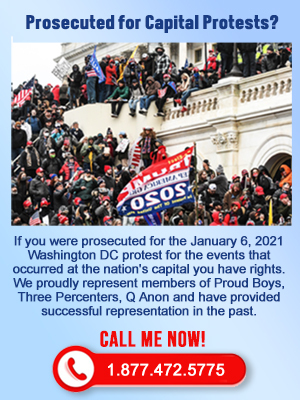Securities fraud is an extremely complex subject. In a general sense, it refers to any form of fraud that has to do with securities such as stocks and bonds. During the process of becoming a public entity, corporations must disclose an extraordinary amount of information to federal regulators and to potential investors in order to avoid engaging in securities fraud.
However, complying with these initial requirements is not necessarily enough to avoid securities fraud charges in the long run. Throughout the lifetime of a publicly traded business, responsible parties within the business will come into contact with sensitive information that could influence potential investors. When they choose to use this information in an irresponsible way, they may enrich themselves to the injury of investors.
Securities & Commodities Fraud Laws
Securities fraud falls under federal jurisdiction because federal laws and statutes are used to define what commodities and securities may be traded on major public exchanges. Securities and commodities fraud is defined under 18 USC § 1348 of the United States Code.
Although the definition of securities fraud includes only 168 words, it is important to recognize that anyone associated with securities is placed in a position of official trust and has ongoing reporting responsibilities, tax liabilities, and other requirements associated with those activities.
In addition to the United States Code, important information on securities fraud is also provided for in the Securities Exchange Act of 1934. The Securities Exchange Act of 1934 dates back to the Great Depression and was intended to protect potential investors from fraudulent securities by demanding a thorough and comprehensive disclosure of material facts related to all securities traded on a major exchange.
Securities Fraud Crimes & Charges
Federal law provides for two major categories of securities fraud. Within these two major categories, dozens of intentional or negligent activities may lead to charges of securities fraud. The categories include:
- Defrauding any person in connection with any commodity or option on a commodity for future delivery, or any security of an issuer with a class of securities defined by the Securities Exchange Act, Section 12.
- Obtaining through falsehood or fraudulence, misrepresentation, or promises any thing of value, including money or property, in connection with sale or purchase of a commodity or option on a commodity for future delivery, or any security of an issuer as provided above.
In practice, these laws cover and any all false statements and failure to report material facts related to securities. Through such false statements and omissions, the providers of securities generally seek to secure a fast, fraudulent profit through the misuse of potential investor funds.
Securities Fraud Punishment
Sentencing guidelines for securities fraud provide for fines, incarceration, restitution, and probation. Each instance of securities fraud can carry with it a prison sentence of five years. Fines and restitution amounts will depend on the amount of material gain or the loss to victims created as a result of the fraud.
Securities Fraud Sentencing Guidelines
Sentencing guidelines for securities fraud are complex. Although each count of securities fraud may result in a prison sentence, it is not always straightforward to develop a fine or restitution amount that reflects the social damage done. Federal authorities have access to sophisticated sentencing formulae they use to determine the value of such penalties based upon the specific falsehoods involved in fraud, the true value of the securities and the amount of time.
Securities Fraud Statute of Limitations
The federal rules of criminal procedure (18 USC 3282) require that any prosecution, trial or punishment in response to a noncapital federal offense be instituted by an indictment or the institution of information in the case within five years of the offense. However, cases involving securities fraud can have far-reaching repercussions that may result in prosecution for some subset of crimes stemming from the original violation long after the initial statute of limitations may seem to have expired.
Securities Fraud Cases
Some major securities fraud cases include:
- One of the most notable federal securities fraud cases of all time was related to the collapse of Enron, Inc. Corporate wrongdoing in the Enron case may have amounted to more than $1.2 billion in unlawful insider trading. (University of California)
- Within the same period of time, global telecommunications company WorldCom became embroiled in a scandal including allegations of securities fraud and other wrongdoing which eventually led to a settlement in excess of $3.5 billion. (Stanford Law School)
Securities Fraud Quick Links & References
- Securities and Commodities Fraud in the United States Legal Code, Courtesy of Cornell
- What Is Securities Fraud? An Overview from the Duke School of Law (in PDF Format)
- Securities Fraud Awareness & Prevention from the U.S. Federal Bureau of Investigation
- Free Information on Insider Trading from the Concise Encyclopedia of Economics
- Federal Sarbanes-Oxley Regulatory/Accounting Standards for Fraud Prevention
- Full Text of the Federal Securities and Exchange Act of 1934 (PDF)
- Overview of Laws Governing Securities and Exchanges
- Sentencing Guidelines for Securities Fraud
Securities Fraud Laws by State
Alabama, Alaska, Arizona, Arkansas, California, Colorado, Connecticut, Delaware, Florida, Georgia, Hawaii, Idaho, Illinois, Indiana, Iowa, Kansas, Kentucky, Louisiana, Maine, Maryland, Massachusetts, Michigan, Minnesota, Mississippi, Missouri, Montana, Nebraska, Nevada, New Hampshire, New Jersey, New Mexico, New York, North Carolina, North Dakota, Ohio, Oklahoma, Oregon, Pennsylvania, Rhode Island, South Carolina, South Dakota, Tennessee, Texas, Utah, Vermont, Virginia, Washington, West Virginia, Wisconsin, Wyoming
